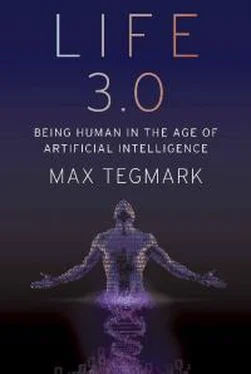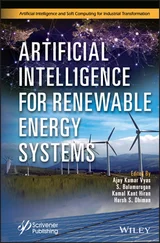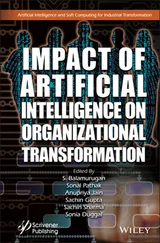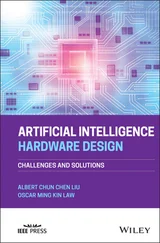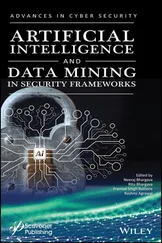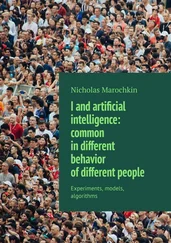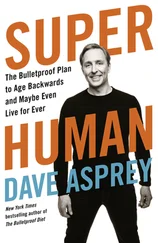Also by Max Tegmark
Our Mathematical Universe

This Is a Borzoi Book Published by Alfred A. Knopf
Copyright © 2017 by Max Tegmark
All rights reserved. Published in the United States by Alfred A. Knopf, a division of Penguin Random House LLC, New York, and distributed in Canada by Random House of Canada, a division of Penguin Random House Canada Limited, Toronto.
www.aaknopf.com
Knopf, Borzoi Books and the colophon are registered trademarks of Penguin Random House LLC.
Library of Congress Cataloging-in-Publication Data
Names: Tegmark, Max, author.
Title: Life 3.0 : being human in the age of artificial intelligence / by Max Tegmark.
Other titles: Life three point zero
Description: New York : Alfred A. Knopf, 2017. | “This is a Borzoi Book published by Alfred A. Knopf.” | Includes bibliographical references and index.
Identifiers: LCCN 2017006248 (print) | LCCN 2017022912 (ebook) | ISBN 9781101946596 (hardcover) | ISBN 9781101946602 (ebook)
Subjects: LCSH: Artificial intelligence—Philosophy. | Artificial intelligence—Social aspects. | Automation—Social aspects. | Artificial intelligence—Moral and ethical aspects. | Automation—Moral and ethical aspects. | Artificial intelligence—Philosophy. | Technological forecasting. | BISAC: TECHNOLOGY & ENGINEERING / Robotics. | SCIENCE / Experiments & Projects. | TECHNOLOGY & ENGINEERING / Inventions.
Classification: LCC Q334.7 (ebook) | LCC Q334.7 .T44 2017 (print) | DDC 006.301—dc23
LC record available at https://lccn.loc.gov/2017006248
Ebook ISBN 9781101946602
Cover art by Suvadip Das; (man) based on Netfalls Remy Musser/Shutterstock
Cover design by John Vorhees
v4.1
ep
Contents
Cover
Also by Max Tegmark
Title Page
Copyright
Dedication
Acknowledgments
Prelude: The Tale of the Omega Team
1 Welcome to the Most Important Conversation of Our Time
A Brief History of Complexity
The Three Stages of Life
Controversies
Misconceptions
The Road Ahead
2 Matter Turns Intelligent
What Is Intelligence?
What Is Memory?
What Is Computation?
What Is Learning?
3 The Near Future: Breakthroughs, Bugs, Laws, Weapons and Jobs
Breakthroughs
Bugs vs. Robust AI
Laws
Weapons
Jobs and Wages
Human-Level Intelligence?
4 Intelligence Explosion?
Totalitarianism
Prometheus Takes Over the World
Slow Takeoff and Multipolar Scenarios
Cyborgs and Uploads
What Will Actually Happen?
5 Aftermath: The Next 10,000 Years
Libertarian Utopia
Benevolent Dictator
Egalitarian Utopia
Gatekeeper
Protector God
Enslaved God
Conquerors
Descendants
Zookeeper
1984
Reversion
Self-Destruction
What Do You Want?
6 Our Cosmic Endowment: The Next Billion Years and Beyond
Making the Most of Your Resources
Gaining Resources Through Cosmic Settlement
Cosmic Hierarchies
Outlook
7 Goals
Physics: The Origin of Goals
Biology: The Evolution of Goals
Psychology: The Pursuit of and Rebellion Against Goals
Engineering: Outsourcing Goals
Friendly AI: Aligning Goals
Ethics: Choosing Goals
Ultimate Goals?
8 Consciousness
Who Cares?
What Is Consciousness?
What’s the Problem?
Is Consciousness Beyond Science?
Experimental Clues About Consciousness
Theories of Consciousness
Controversies of Consciousness
How Might AI Consciousness Feel?
Meaning
Epilogue: The Tale of the FLI Team
Notes
To the FLI team,
who made everything possible
Acknowledgments
I’m truly grateful to everyone who has encouraged and helped me write this book, including
my family, friends, teachers, colleagues and collaborators for support and inspiration over the years,
Mom for kindling my curiosity about consciousness and meaning,
Dad for the fighting spirit to make the world a better place,
my sons, Philip and Alexander, for demonstrating the wonders of human-level intelligence emerging,
all the science and technology enthusiasts around the world who’ve contacted me over the years with questions, comments and encouragement to pursue and publish my ideas,
my agent, John Brockman, for twisting my arm until I agreed to write this book,
Bob Penna, Jesse Thaler and Jeremy England for helpful discussions about quasars, sphalerons and thermodynamics, respectively,
those who gave me feedback on parts of the manuscript, including Mom, my brother Per, Luisa Bahet, Rob Bensinger, Katerina Bergström, Erik Brynjolfsson, Daniela Chita, David Chalmers, Nima Deghani, Henry Lin, Elin Malmsköld, Toby Ord, Jeremy Owen, Lucas Perry, Anthony Romero, Nate Soares and Jaan Tallinn,
the superheroes who commented on drafts of the entire book, namely Meia, Dad, Anthony Aguirre, Paul Almond, Matthew Graves, Phillip Helbig, Richard Mallah, David Marble, Howard Messing, Luiño Seoane, Marin Soljačić, my editor Dan Frank and, most of all,
Meia, my beloved muse and fellow traveler, for her eternal encouragement, support and inspiration, without which this book wouldn’t exist.
LIFE 3.0

Prelude The Tale of the Omega Team
The Omega Team was the soul of the company. Whereas the rest of the enterprise brought in the money to keep things going, by various commercial applications of narrow AI, the Omega Team pushed ahead in their quest for what had always been the CEO’s dream: building general artificial intelligence. Most other employees viewed “the Omegas,” as they affectionately called them, as a bunch of pie-in-the-sky dreamers, perpetually decades away from their goal. They happily indulged them, however, because they liked the prestige that the cutting-edge work of the Omegas gave their company, and they also appreciated the improved algorithms that the Omegas occasionally gave them.
What they didn’t realize was that the Omegas had carefully crafted their image to hide a secret: they were extremely close to pulling off the most audacious plan in human history. Their charismatic CEO had handpicked them not only for being brilliant researchers, but also for ambition, idealism and a strong commitment to helping humanity. He reminded them that their plan was extremely dangerous, and that if powerful governments found out, they would do virtually anything—including kidnapping—to shut them down or, preferably, to steal their code. But they were all in, 100%, for much the same reason that many of the world’s top physicists joined the Manhattan Project to develop nuclear weapons: they were convinced that if they didn’t do it first, someone less idealistic would.
The AI they had built, nicknamed Prometheus, kept getting more capable. Although its cognitive abilities still lagged far behind those of humans in many areas, for example, social skills, the Omegas had pushed hard to make it extraordinary at one particular task: programming AI systems. They’d deliberately chosen this strategy because they had bought the intelligence explosion argument made by the British mathematician Irving Good back in 1965: “Let an ultraintelligent machine be defined as a machine that can far surpass all the intellectual activities of any man however clever. Since the design of machines is one of these intellectual activities, an ultraintelligent machine could design even better machines; there would then unquestionably be an ‘intelligence explosion,’ and the intelligence of man would be left far behind. Thus the first ultraintelligent machine is the last invention that man need ever make, provided that the machine is docile enough to tell us how to keep it under control.”
Читать дальше
